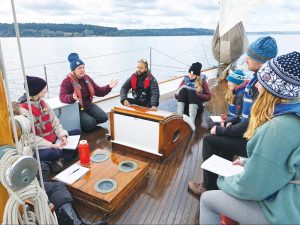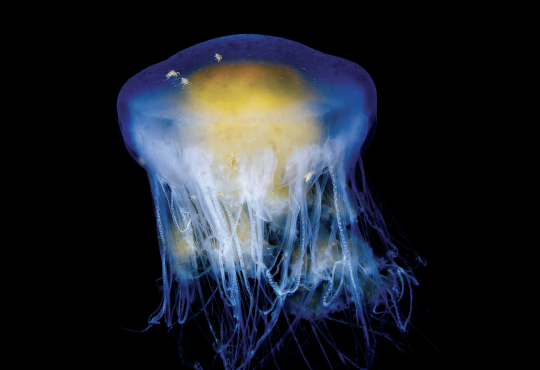

The Sound Policy Institute (SPI) is the one campus institution you’ve never heard of but see every day. Directed by Dr. Daniel Sherman of the Environmental Policy and Decision-Making (EPDM) Department, the Institute’s stated goal is to “build the capacity of individuals and groups, both on our campus and inner regional community, to actively and effectively engage in environmental decision making.”
SPI is not like a traditional academic institution. “SPI exists to build and maintain bridges between the community and campus on environmental issues. We try to integrate academics with place-based and community-based experiential learning,” Dr. Sherman said.
SPI’s experiential learning program includes courses such as “Sustainability in Everyday Life,” which, according to the EPDM website, teaches students and community members about how they “can take actions that lead to environmental and social improvements in our surroundings.” These courses are a great way to get involved in SPI, and a complete list of them can be found on Puget Sound’s curriculum page.
Outside of their field-based courses, SPI also serves to maintain a network between the Tacoma community and campus. “We’re always looking for community groups to partner with,” Dr. Sherman said. These partnerships help SPI plan events on current environmental issues in the Puget Sound area.
In 2016, SPI hosted a lecture on the environmental and health impacts of Methanol plants in the wake of the Methanol plant proposal. The lecture brought together numerous students, faculty and community members to learn about $3.6 billion proposal by China-backed company Northwest Innovation Works and its environmental and human health impacts. It is events like these that help engage the community in issues of environmental justice.
In addition to hosting campus-centered events, SPI partners with local organizations to host sustainability-oriented workshops and events.
Every spring, SPI hosts the Tacoma/Pierce County Children’s Water Festival. This event brings over 1,000 students from 13 schools to the Puget Sound campus to learn about water quality and conservation. SPI also hosts workshops for college and university faculty members nationwide to learn about how they can think about sustainability and what efforts they can make in the classroom to more effectively teach about it.
The efforts of SPI to integrate environmental conservation into the Puget Sound curriculum have paid off.
In 2012, “we did a curriculum assessment of our campus. About 50 percent of courses had some sustainability element,” Dr. Sherman said.
These numbers suggest that environmental conservation issues are piquing the interest of students on campus.
Despite heightened campus awareness of conservation issues, Dr. Sherman believes there is room to improve. “When we do things that reduce our environmental impact, there needs to be ways for us to learn about that. When we don’t live up to our ideals, we need to know that too,” Dr. Sherman said.
SPI’s ability to connect community members and organizations with Puget Sound students ensures that we all understand our role in the local environment and what we can do to help.


